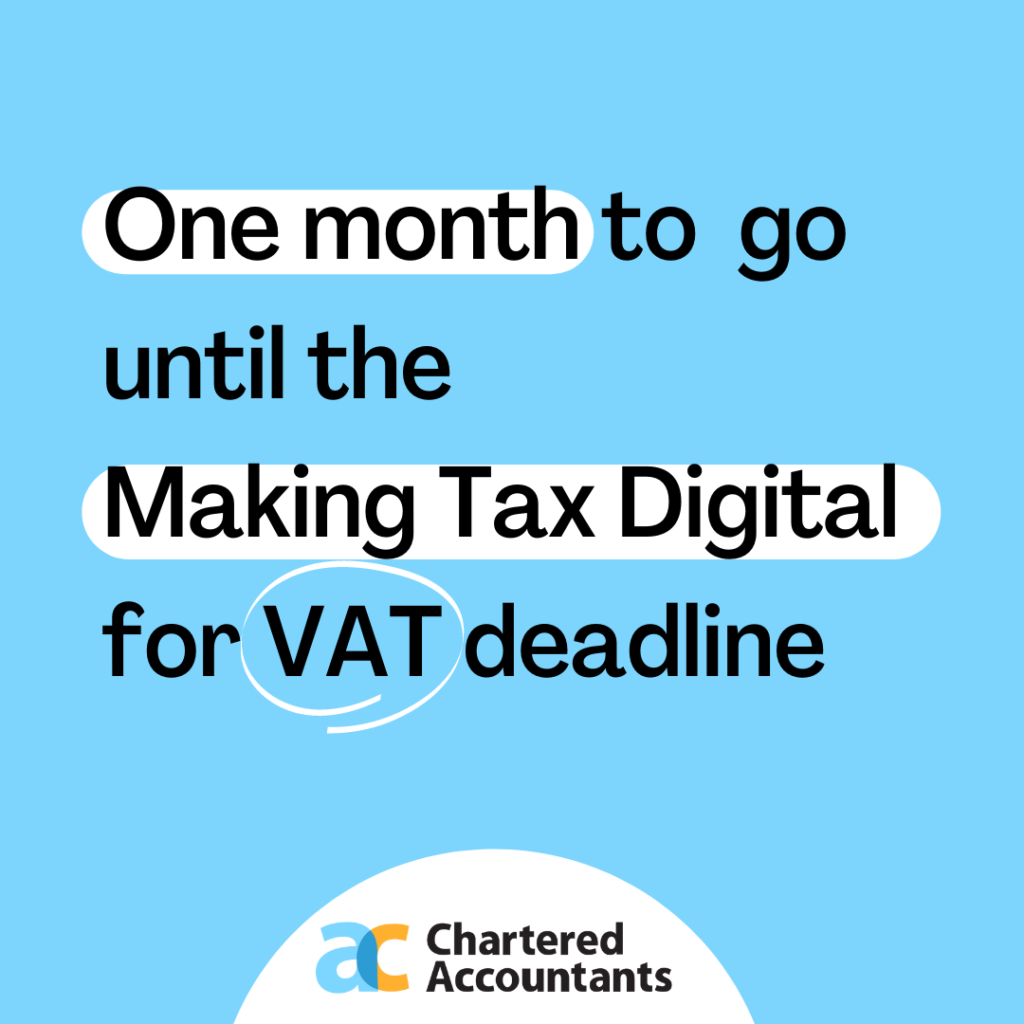
Important Tax Deadlines & Events (Updated For 2025)
It is crucial to stay on top of key tax dates to keep your financial affairs in order. Here’s a friendly reminder of the important tax deadlines this year.


It is crucial to stay on top of key tax dates to keep your financial affairs in order. Here’s a friendly reminder of the important tax deadlines this year.

Discover the suggested reimbursement rates for employees’ private mileage using their company car.

Now is the perfect time to review your finances and make sure you’re making the most of available tax reliefs and allowances.

It is that time of year again for staff parties and annual functions, so it is important to make sure you record it properly.

The VAT Flat Rate scheme was introduced in 2002 to simplify VAT reporting for small traders, reducing the time taken to calculate VAT and prepare returns compared to normal VAT accounting.

There are important changes from 1 June 2022 for small businesses using the Flat Rate Scheme who are importing goods and using postponed VAT accounting.

What is missing trader fraud? Missing trader fraud involves a ‘missing’ or ‘defaulting’ trader who deliberately fails to pay its VAT liability for taxable supplies

It is fairly common, particularly in the summer holidays, to pay deposits when booking a hotel or self-catering accommodation but how should the deposit be accounted for?

Learn about the upcoming changes to VAT on private school fees starting 1 January 2025. Understand the new VAT rules for private schools, including transitional arrangements and how these UK budget 2024 VAT changes could affect you.

Many in the hospitality sector were hoping that the Chancellor would extend the 12.5% reduced rate that has applied since 1 October 2021 but, as scheduled, the rate has reverted to 20% from 1 April 2022.

If your business has suffered VAT on expenses incurred in another EU country, for example, overseas hotel and restaurant bills, then it is possible to

It is currently mandatory for most businesses with a taxable turnover above the £85k VAT threshold and will be mandatory for all businesses in April 2022.

HMRC have recently updated their guidance for VAT registered importers. These traders must account for postponed import VAT on their VAT returns for the accounting period which covers the date they imported the goods.

HMRC have recently updated their guidance on accounting for VAT on goods imported from outside the UK which, since Brexit, includes the European Union.

Firstly, what is VAT? VAT, or Value Added Tax, is levied on the sale of goods and services in the UK. It is a type

As you start on your own there are many things to consider. One of the important questions to really think through is whether you will operate as a self-employed sole trader or set your business up as a limited company. Below we will highlight some of the differences of each.


If your tax payment due on 31 January is more than you expected there is still time to reduce the liability if you are prepared to take a risk.

Self Assessment customers will not receive a penalty if they file by 28.02.21. HMRC is encouraging anyone who has not yet filed their tax
A&C Chartered Accountants would like to advise all clients and other readers of the changes to the penalties for filing your self-assessment tax returns late

HM Revenue and Customs (HMRC) have issued a reminder to be careful about scam attempts that target people filing Self Assessment tax returns

The HMRC rate of interest on beneficial loans looks very attractive compared to the Bank of England Base rate of 4.5% and much higher rates charged by banks for unsecured loans.

In recent years many accountants have advised their director/shareholder clients that the most tax efficient method of extracting profit from their family company was to pay themselves a low salary, at or around the £12,570 personal allowance, with the balance in dividends.

HMRC have announced that the official rate of interest will remain at 2.25% for 2024/25, despite the Bank of England Base Rate currently standing at 5.25%. The official rate of interest

HMRC have recently announced that they may allow limited companies to make claims for loss relief and tax refunds even though the current accounting period has not yet ended and the corporation tax return has not been submitted.